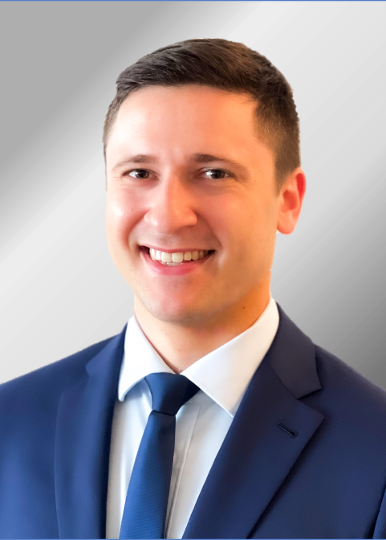SOM Student Graduates with Extensive Neurosurgical Research Publications
Jacob Greisman, SOM Class of 2023, Has Co-Authored 13 Published Manuscripts and Presented at National Conferences

Medical school has been a whirlwind of research activity for Jacob Greisman, School of Medicine (SOM) Class of 2023, that has included co-authoring 13 published manuscripts to date and presenting at several national conferences on a range of neurosurgical research topics, including brain tumor surgery, cervical stenosis and craniosynostosis surgery.
“I am particularly proud of a project I’ve been working on with a team of researchers at Lenox Hill Hospital on enhanced recovery after surgery for cranial tumor resection, which was recently published in World Neurosurgery,” said Greisman, who served as lead author. “Under the guidance of Randy D’Amico, M.D., [director of the Brain and Spine Metastasis Program at Lenox Hill], I led a team to propose the first multidisciplinary, digestible, evidence-based recommendations to manage patients undergoing supratentorial tumor resection. I learned to manage overwhelming tasks by dividing them into manageable parts and delegating responsibilities accordingly.”
Research conducted on a novel neurosurgical subcortical simulation device has already resulted in publications in World Neurosurgery and The Neurodiagnostic Journal, accepted for publication by Operative Neurosurgery and presented at the American Association of Neurological Surgeons Annual Scientific Meeting. “Brain mapping and neuromonitoring remain the gold standard for identifying and preserving functional neuroanatomic regions during safe, maximal brain tumor resection,” said Greisman and his fellow researchers. “Subcortical stimulation (SCS) can identify white matter tracts and approximate their distance from the leading edge of an advancing resection cavity. In this study, we described a novel, cost-effective, dynamic SCS technique with the potential to improve surgical outcomes.”
Greisman credits his mentors at New York Medical College (NYMC) for playing an integral role in his prolific research success. “I feel incredibly lucky for the mentors who exposed me to various disciplines and encouraged me to pursue traditional and nontraditional research projects,” said Greisman. “Justin Santarelli, M.D., [assistant professor of neurosurgery] exposed me to endovascular neurosurgery and the rapidly evolving minimally invasive stroke treatments, Chirag Gandhi, M.D., [chair and professor of Department of Neurosurgery and professor of neurology and radiology] taught me how meticulous, strategic research methodology can pay ample dividends, and Dr. D’Amico taught me to seek opportunity in unexpected places.”
Recognizing the value mentorship had for him, Greisman also devoted himself to being a mentor and tutor to fellow medical students through the peer learning. His passion for educating others led him to pursue the medical education area of concentration at NYMC.
“My capstone project involved creating an open-access bibliometrics database to promote medical student academic productivity and better inform residency match decision-making,” said Greisman. “Our goal was to create a free, intuitive database that aggregated literature metadata and descriptive information for all faculty, fellows and residents at U.S. neurosurgery departments. Our prototype is functional, and we are currently writing up our preliminary analyses.”
Yet his experience during his sub internships at three different hospitals led him to further broaden his effort. “During my sub internships, I observed universal inefficiencies in digital workflow, including but certainly not limited to electronic medical records-related issues. Downstream effects were far-reaching and profound, from tolls on resident and faculty wellness to patient care quality. The disconnect between medical education and training programs and the computer-based tools common to other industries became increasingly apparent.”
Greisman took it upon himself to learn as much fundamental data science as possible and his capstone project subsequently evolved to encompass an emphasis on the utility of artificial intelligence (AI) and machine learning in medicine, address hospital workflow inefficiencies and advocate for incorporating computer science fundamentals into medical education.
After he graduates with his M.D. from NYMC this May, Greisman will take the next step in his medical training in the neurosurgery department at Tulane Medical Center, which is actively collaborating with AI-platform developers to improve clinical outcomes. He also plans to continue his research on AI in medicine and to work to encourage institutional administrators to integrate computer and data science fundamentals into medical education curriculum
“My ERAS personal statement began with a quote from Robert Lewis Stevenson: ‘the mark of a good action is that it seems inevitable in retrospect.’ This statement continues to ring true as I look forward to continuing my medical training. I believe my experiences are a testament to persevering by making opportunities from difficult situations.”
